Calcium is one of the most important minerals. It plays an important role in bone and teeth health, among many other things. However, I don’t recommend supplementing it. Foods rich in calcium provide calcium in a form our bodies can use, along with co-factors like magnesium, vitamin K2, and other minerals that help our bodies use calcium the way it should be.
The health benefits of calcium
When you think of calcium, your mind likely jumps to strong bones. Yes, it’s true that calcium is important for bone health, but you also need it for:
- Bone/teeth health
- Nerve communication
- Blood clotting
- Hormone secretion
- Muscle contraction
Calcium supplementation is not a good idea
Getting sufficient calcium FROM FOOD is important. However, problems arise when you get too much calcium from supplementation and calcium that’s not in the right form. Too much calcium is detrimental to our mineral balance.
This is especially worrisome as calcium is quite a popular vitamin supplement these days, especially among older women, in the hopes of preventing hips fractures and the like. The thing is, we see little evidence that calcium supplementation does anything to help with hip or lumbar vertebral bone mineral density in older adults. Other studies show that in postmenopausal women, calcium supplementation doesn’t appear to reduce fracture rates, and might actually do the opposite.
The true missing nutrient to bone health is vitamin K2, a nutrient that is widely missing from modern diets and is responsible for keeping calcium in the bones and teeth and out of the tissues.
Calcium supplements are associated with serious health risks
Excess calcium from supplementation is associated with:
- Increased calcification of the soft tissues
- Hardening/stiffening of the arteries
- Magnesium deficiency
- Sodium and potassium imbalances
A meta-analysis (a study of study)published in the BMJ involving over 12,000 people found that calcium supplementation increases the risk of:
- Heart attack by 31%
- Stroke by 20%
- Death from all causes by 9%
Other studies show even more harmful consequences of calcium supplementation, including:
- Increased risk of kidney stones
- Increased risk of prostate cancer
Calcium supplements are no joke. But other problems arise when we consider the dang food fortification program.
The Problems of Food Fortification
Another thing to look out for is calcium fortification. Many foods have added calcium and this form of calcium can be as equally detrimental to health as taking a calcium supplement.
When you get calcium from food, it is VERY difficult to get too much. You are also getting all of the enzymes, vitamins, and minerals that help your body put calcium to use.
When calcium is added to foods, it is the same supplemental forms that cause the health complications listed above and the amount usually exceeds the amount of calcium one would need in a day, especially when coupled with other foods in a person’s diet that are high in calcium either naturally or fortified.
Frequent offenders:
- Orange juice
- Almond milk/Non-dairy milk
- Breakfast cereals
- Bread
- Instant oatmeal
- Multi-vitamins and prenatal vitamins
Get calcium from food:
If you eat dairy, it’s pretty easy to meet your daily calcium goals. If you don’t tolerate dairy (yet!) or are working to add dairy back to your diet, getting enough calcium may take more intention and planning.
Here are two examples of how you can hit your daily calcium target, easily with food. With and without dairy.
Hitting your daily target with dairy: 1000-1200 mg
- 12 oz raw milk: 450 mg
- 1 cup Greek yogurt: 270 mg
- .5 oz raw cheese: 100 mg
- 1 cup mineral/bone broth: 250 mg
- 1 cup butternut squash: 100 mg
- TOTAL: 1170 mg
Hitting your daily target without dairy: 1000-1200 mg
- 4 oz sardines: 250 mg
- 1 cup cooked collard greens: 250 mg
- 1/2 cup clams: 50 mg
- 1 cup mineral/bone broth: 250 mg
- 1 cup butternut squash: 100 mg
- 1 medium orange: 50 mg
- 2 figs: 35 mg
- 2 medium eggs: 45 mg
TOTAL: 1030 mg
If you are not currently eating quality dairy, it can be really helpful to use tools like mineral broths and pearl powder to help meet calcium goals. (Code CKN10 for 10% off Crucial Four Pearl Powder.)
Real food provides other nutrients to help you use calcium
One of the reasons I love raw milk is that it is an excellent source of calcium AND vitamin K2. Vitamin K2 was abundant in traditional food diets, which contributed to the wide jaw formation, symmetric facial structures, and straight teeth that Weston A Price observed in his research. This vitamin is lacking in modern diets and is essential to keep calcium in the bones/teeth (where it belongs) and out of tissues where it can do serious damage.
Magnesium is also key to calcium absorption. The two work together and must maintain balance for optimal health. Getting enough of both is key. Raw cacao, avocado, and banana are great food sources of magnesium. Magnesium supplementation is another good option.
Calcium-Rich Smoothie Recipe
Ingredients:
- 4 oz raw milk (300 mg calcium)
- 4 oz goat kefir (170 mg calcium)
- 1/8 teaspoon pearl powder (475 mg calcium)
- 1 frozen banana (30 mg magnesium*)
- 1/2 cup frozen blueberries
- 1 tablespoon raw cacao powder (50 mg magnesium*)
- 1/2 teaspoon ceylon cinnamon
- 1 tablespoon raw honey (optional)
Put everything in a blender and blend! Top with cacao nibs and bee pollen. Don’t forget to chew your smoothie!
Want to learn more?
If you want to know more about your own calcium and mineral balance, an HTMA can be really helpful!
Schedule a FREE 15-minute consultation to learn how an HTMA can give you so much insight into your health and mineral balance.
Resources:
Calcium intake and bone mineral density: systematic review and meta-analysis
Risk of high dietary calcium for arterial calcification in older adults
The risk of kidney stone formation: the form of calcium matters
Important Notes
I am not a doctor, and I don’t claim to be one. I can’t prevent, treat, cure or diagnose illness or disease. The information presented on this website is not meant to replace a one-on-one relationship with a qualified health care professional and is not intended as medical advice, treatment or diagnosis. The purpose of this website is to share knowledge from my research and experience. I encourage you to make your own decisions regarding your health care based on your own research and relationship with your health care professional.
Some of the links on this page are affiliate links, which means I earn a small commission if you purchase through that link, at no additional cost to you. Thank you for supporting my work!
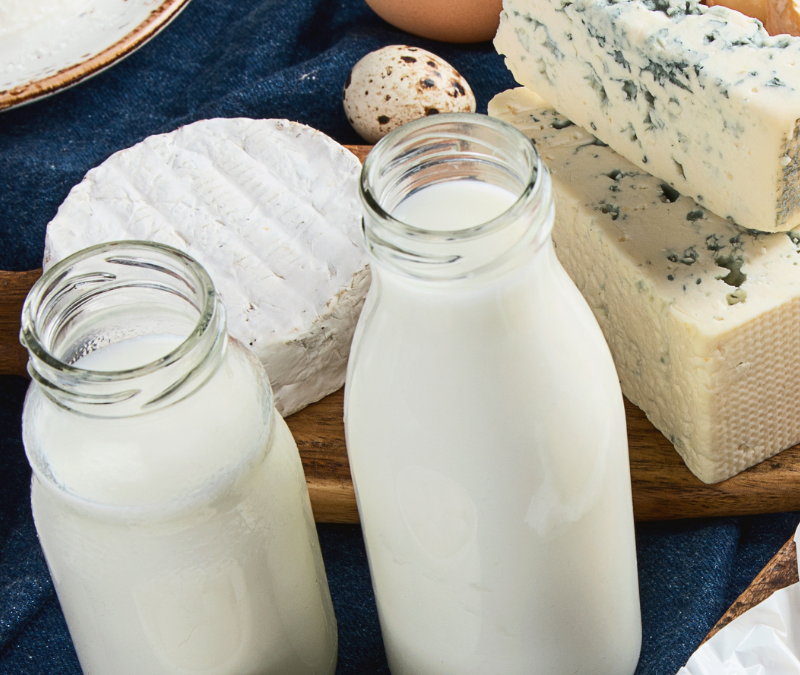
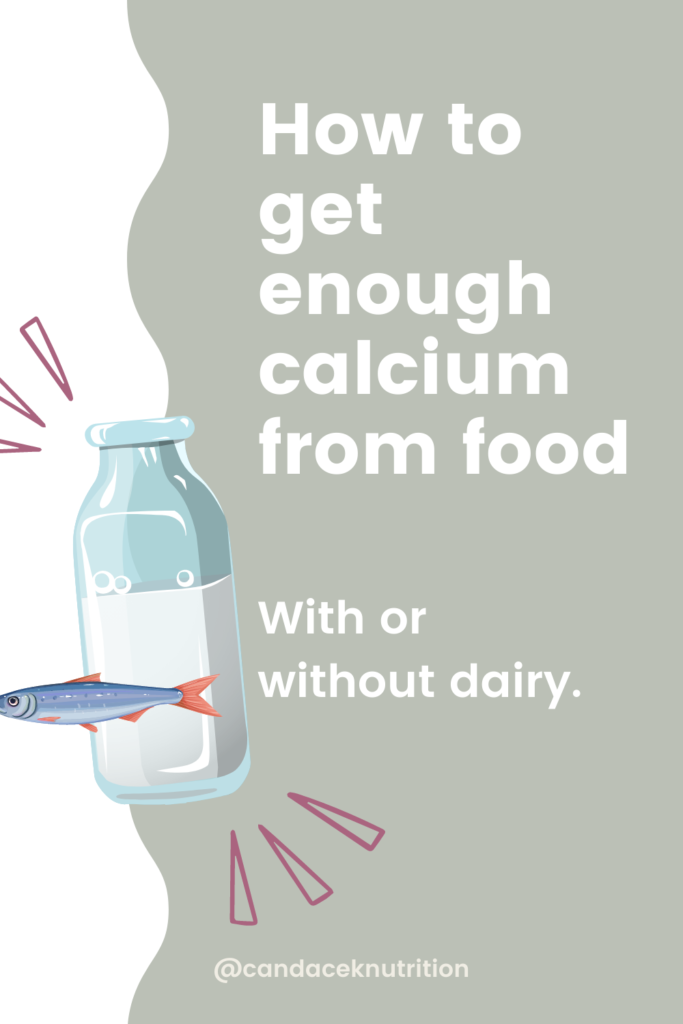
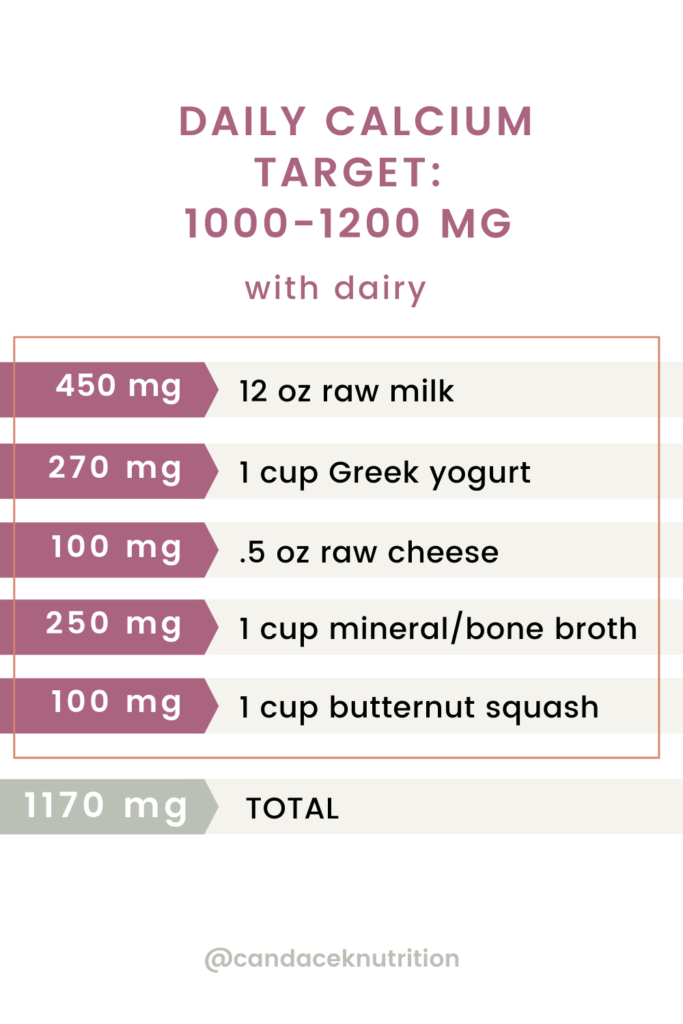
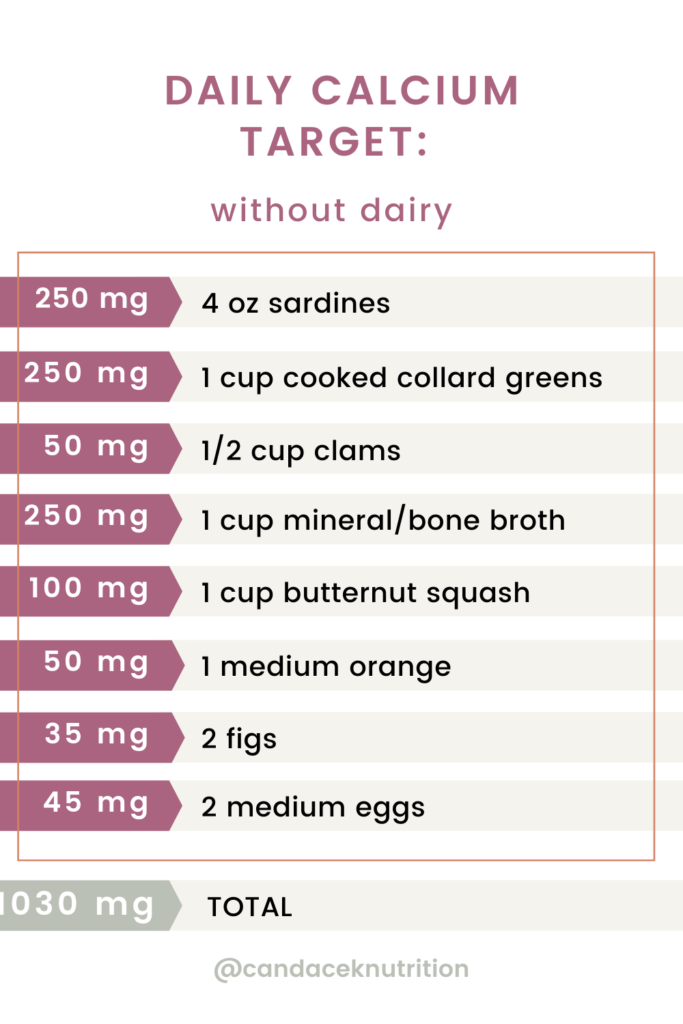
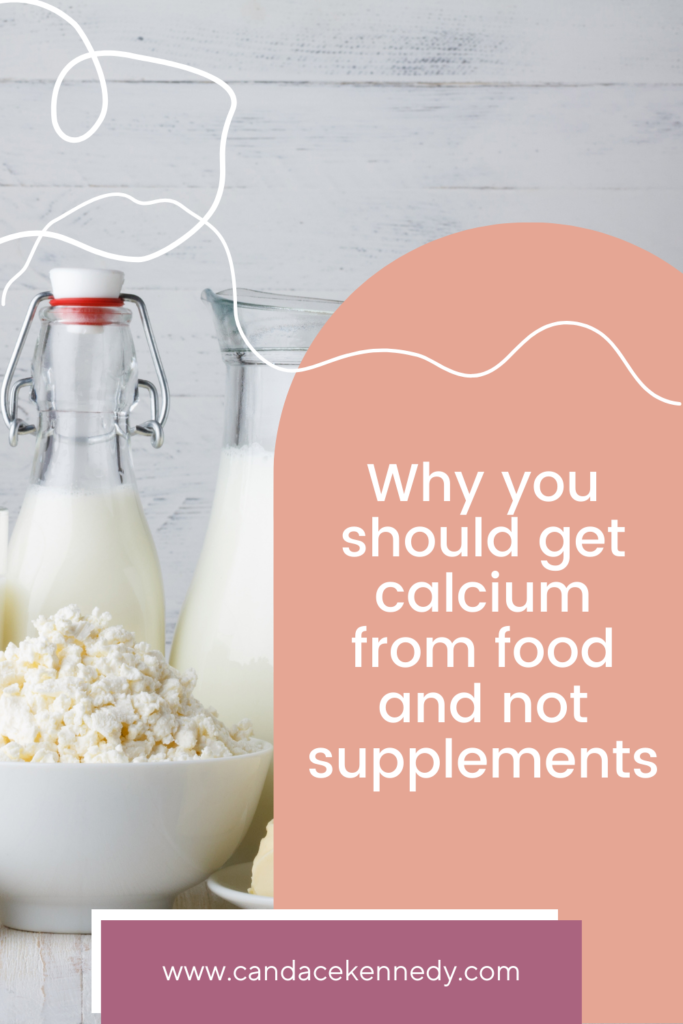
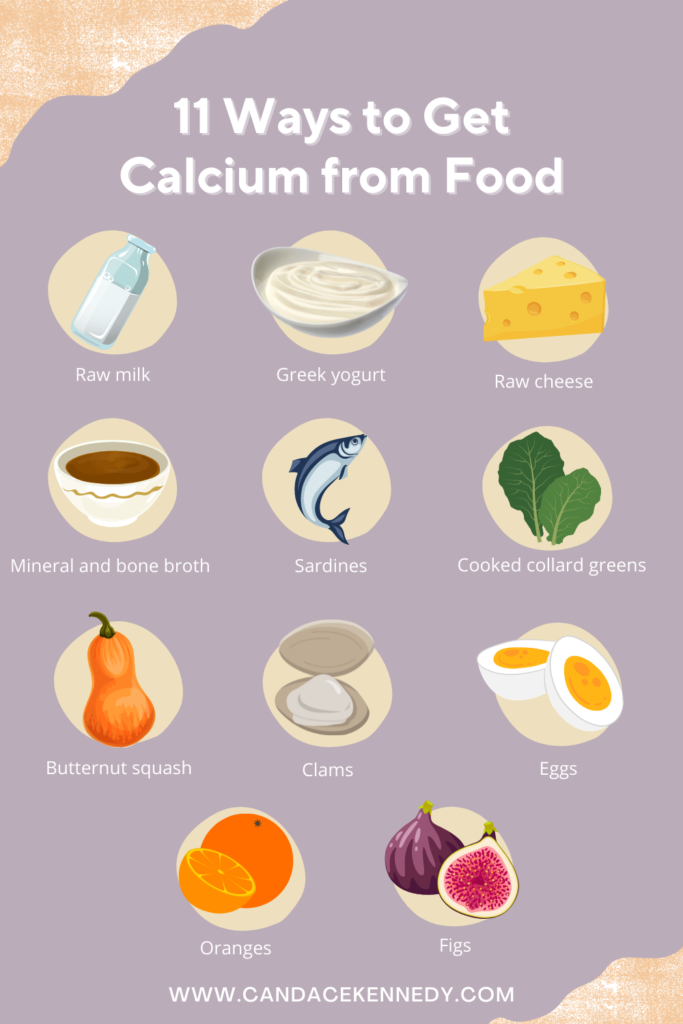
Trackbacks/Pingbacks